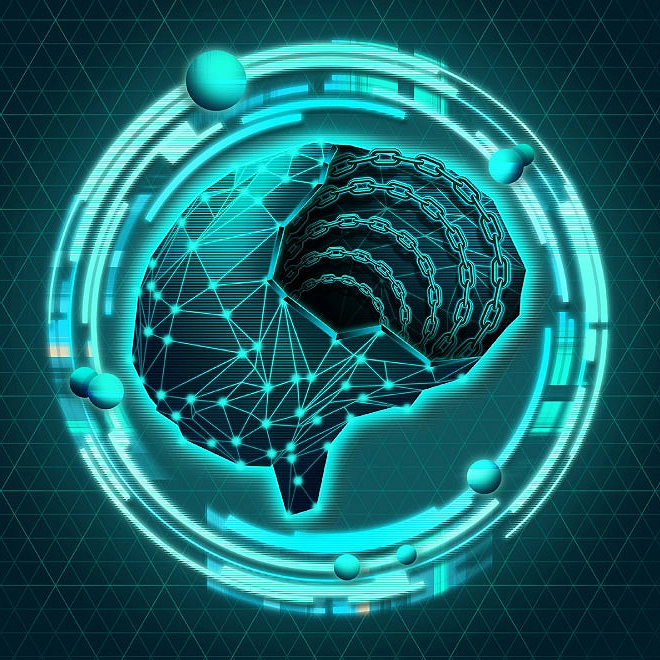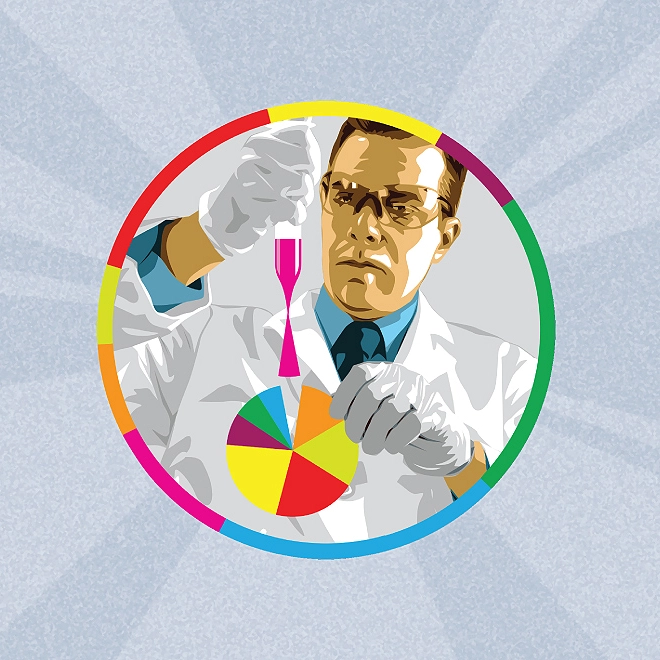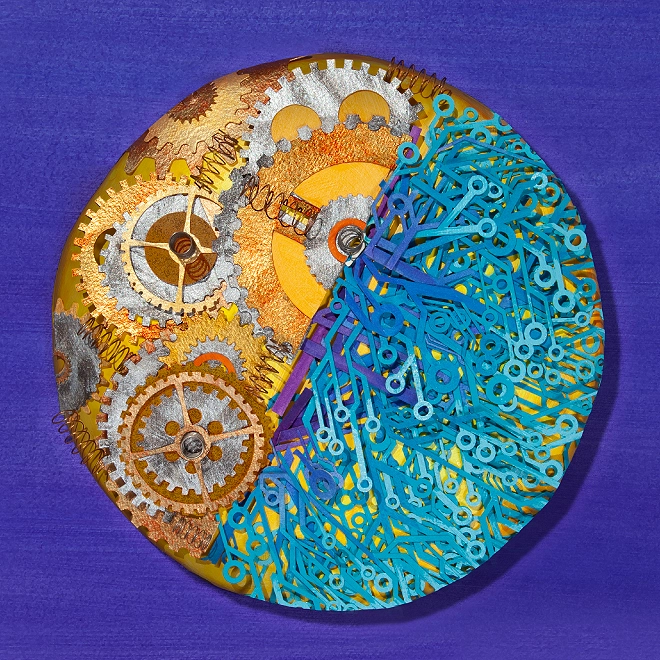Intelligent drug discovery
Powered by AI
While drug discovery has led to many life-saving and life-enhancing clinical treatments, it is also a long, expensive and often unsuccessful process, with many areas of unmet need. AI-enabled solutions are transforming the process and enabling the development of more precise targeted treatments. This is shifting health care towards a future where medicine is more personalised, predictive, preventative and participatory.
Drug discovery is the process of identifying new medicines for treating or curing human diseases.1 Historically, the discovery of new medicines involved extracting ingredients from natural products and basic research to find potential treatments. Progress was generally slow, frustrating and labour-intensive.
Accelerating drug discovery
The majority of drugs discovered during the 20th century were chemically synthesised small molecules, which still make up 90 per cent of drugs on the market today.2 Their advantages include simple manufacturing and administration routes. They also have low specificity and a stable shelf life, meaning they are safe and effective for large groups of people. However, low specificity can also lead to side effects, reducing the chances of success in clinical trials.
Since the 1990s, scientific and technological advances have led to the discovery of larger, more complex, biological therapeutics known as biologics, which are highly specific to their target. Biologics have invoked high levels of media and investor interest due to their innovative techniques and potential to cure previously untreatable diseases. In 2018, 17 of the 59 drugs approved by Food and Drug Administration (FDA) were biologics.
To date, the discovery of modern drugs remains a long, expensive and often unsuccessful process. The average time to bring a molecule to launch is 10-12 years.3 Deloitte’s 2018 report, Measuring the return from pharmaceutical innovation calculated that the average cost of R&D for the top 12 biopharma companies is $2.168 billion per drug – double the $1.188 billion calculated in 2010.4 At the same time, the average forecast peak sales per late-stage asset declined to $407 million in 2018, less than half the 2010 value of $816 million. As a result, the expected return on investment has declined from 10.1 per cent in 2010 to 1.9 per cent in 2018. Finding ways of improving the efficiency and cost-effectiveness of bringing new drugs to the market is critical for the industry.
One way to achieve this is by improving the accuracy, predictability and speed of drug discovery, which currently accounts for around a third of the above costs.5 Of the 10,000 molecules initially screened, only 10 make it to clinical trials.6 Moreover, the chance of success for a compound entering phase I trials, the first phase of clinical testing, is slightly under 10 per cent and has not increased in a decade.7 Given the growing cost of bringing a drug to market, a ten per cent improvement in the accuracy of predictions could save billions of dollars spent on drug development.
The rise of AI drug discovery disruptors
A number of AI-enabled solutions are emerging which are crucial for accelerating drug discovery. While these are focused mostly on transforming the process of small molecule research, they are also showing potential in the identification of new biologics such as therapeutic antibodies against cancer, fibrosis and other diseases. The potential of AI to improve the understanding of structures and specificity to the target molecules is due largely to the increasing amounts of structured and unstructured scientific data now available. Deloitte has identified five key challenges on which companies that use AI for drug discovery are focusing their efforts. Finding new drug candidates for disease targets is like finding the perfect key for a specific lock (figure 1).

Key considerations for biopharma's adoption of AI
AI algorithms can extract concepts and relationships from data and learn independently from data patterns, augmenting what humans do. AI also helps cross-reference published scientific literature with alternative information sources, including clinical trials information, conference abstracts, public databanks and unpublished datasets. By mining such data, AI applications in drug discovery have already delivered new candidate medicines, in some cases in months rather than years.8 If adopted at the drug-discovery stage, AI solutions have the potential to kick-start the productivity of the entire R&D process.
Biopharma companies need to develop a robust strategy to integrate AI solutions into traditional processes. Deloitte has identified five key consideration to take into account for a strategic adoption of innovation by biopharma companies (figure 2).

In the past three years, biopharma companies have adopted strategies to integrate AI into the discovery process, such as establishing teams of AI experts and data analysts, investing in startups and creating collaborations with tech giants and/or research centres.9 Deep Knowledge Analytics (DKA) Landscape of AI for Drug Discovery and Advanced R&D Q2 2019 report identifies significant growth in the drug-discovery landscape, (which by 1 July 2019 comprised) 170 AI companies, 50 corporations, 400 investors and 35 major R&D centres. 10 This market has increased from $200 million in 2016 to $700 million in 2018. It is expected to reach $20 billion in the next five years.11
The future of drug discovery delivering '4P' medicine
Deloitte believes AI and other innovative technologies using data from multiple sources can enable more precise targeted treatments and will help shift the health ecosystem towards a future where medicine is personalised, predictive, preventative and participatory (figure 3). This will also lead to new, more efficient and effective models of care. Over the next decade, these shifts will have a significant impact on treatments and on patient outcomes, particularly in areas of unmet need.
As the number of compounds identified using AI increases, drugs capable of treating specific pathologies will become available. This transition will open a new future for the health industry, as a higher level of knowledge on disease mechanisms increases the number of treatments available and, in many cases, cures diseases that have not previously had effective treatments.
To thrive, Biopharma companies need strong AI divisions and a strategy for acquiring or collaborating with the best AI start-ups. Leaders with digital knowledge will need to integrate new strategies into research units. Agility and effective communication between departments with interdisciplinary skills in both business and technology will be a strategic asset.
By 2030, an increasing proportion of drug discovery will be done in silico and in collaboration with academia. The timings from screening to preclinical testing will be reduced to a few months and new potential drug candidates identified at increasingly lower costs. A transition that has already begun today.12
Siginificant advances in the techniques used for drug discovery will evolve to provide the framework for precision medicine to become mainstream. Over the next decade, patients can expect these deveopments to have a significant impact on the effectiveness of their treatment options and on disease outcomes, particularly in areas currently with no treatments available.

The Deloitte Centre for Health Solutions
The Deloitte Centre for Health Solutions is the research arm of Deloitte’s Life Sciences and Health Care practices. We combine creative thinking, robust research and our industry experience to develop evidence-based perspectives on some of the biggest and most challenging issues to help our clients to transform themselves and, importantly, benefit the patient. At a pivotal and challenging time for the industry, we use our research to encourage collaboration across all stakeholders, from pharmaceuticals and medical innovation, health care management and reform, to the patient and health care consumer.



